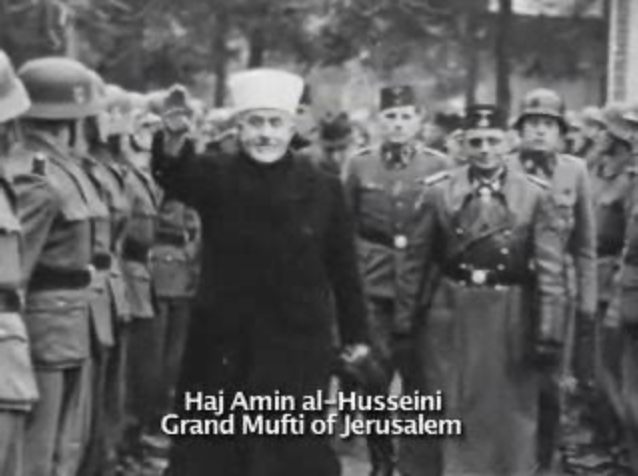Iran Update, June 23, 2024
The Houthis claimed on June 22 that they conducted a combined attack with Iranian-backed Iraqi militias targeting five vessels in and around Haifa Port.[10] The Islamic Resistance in Iraq and the Houthi military spokesperson issued separate but complimentary statements claiming to target four commercial vessels in the Haifa Port using drones on June 22.[11] The Houthi military spokesperson said that the groups targeted two unnamed “cement tankers” and two cargo ships that violated the Houthis’ unofficial blockade of Israel.[12] The groups also claimed a drone attack on a Luxembourg-flagged livestock carrier in the Mediterranean Sea as it approached Haifa Port.[13] CTP-ISW cannot verify whether any attack occurred. These attacks mark the third time that the Houthis have claimed a combined operation targeting Israel with the Islamic Resistance in Iraq since June 6.[14] The growing cooperation between the Houthis and Iranian-backed Iraqi militias furthermore reflects the desire of the Axis of Resistance to present itself as an interoperable coalition.[15]
https://www.understandingwar.org/backgrounder/iran-update-june-23-2024
The Houthis are training their kids to be a mix of Jihadists and Nazis
https://x.com/MarinaMedvin/status/1805043836554555814
1 min video

How Nazis courted the Islamic world during WWII
David Motadel: At the height of the war in 1941-1942, when German troops entered Muslim-populated territories in the Balkans, North Africa, Crimea, and the Caucasus, and approached the Middle East and Central Asia, Berlin began to see Islam as politically significant. Nazi Germany made significant attempts to promote an alliance with the “Muslim world” against their alleged common enemies — the British Empire, the Soviet Union, America and Jews.
https://www.dw.com/en/how-nazis-courted-the-islamic-world-during-wwii/a-41358387
Iran Update, June 24, 2024
Iranian presidential candidates discussed socio-cultural issues during the third debate for the upcoming election. None of the presumed frontrunners (Mohammad Bagher Ghalibaf, Saeed Jalili, and Masoud Pezeshkian) suggested that they would support fundamental changes to long-standing regime policies. All three frontrunners indicated support for the mandatory hijab law and did not suggest that they would support easing restrictions on women’s dress code.[10] That none of these candidates challenged the regime policy reflects their subordination to Supreme Leader Ali Khamenei, who has expressed opposition repeatedly to changing the hijab requirement. Khamenei has described veiling as an “irrevocable, religious necessity.”[11] The frontrunners did debate slightly how to enforce the mandatory hijab law.
Mohammad Bagher Ghalibaf (pragmatic hardliner). Ghalibaf emphasized that all regime bodies—not just the national police force—should encourage and enforce the hijab requirement.[12] Ghalibaf claimed that some regime bodies have supported the police insufficiently in enforcing the mandatory hijab law, leading to violent confrontations between the regime and unveiled women. Ghalibaf also expressed support for a recent hijab enforcement bill that Parliament is considering currently. The legislation codifies legal punishments, including fines and salary cuts, for women who violate the hijab requirement.[13]
Masoud Pezeshkian (reformist). Pezeshkian emphasized his opposition to using violence to enforce the mandatory hijab law but did not propose changing the law itself.[14] Pezeshkian described regime treatment of unveiled women as immoral. Pezeshkian also argued that the regime could stop women from questioning the need to veil by changing how it educates girls in mosques and schools. This statement mirrors similar remarks from Khamenei calling for greater emphasis on indoctrinating Iranian youth in order to resolve social issues.[15]
Saeed Jalili (ultraconservative hardliner). Jalili avoided addressing the hijab issue directly and instead focused on criticizing the West. Jalili accused the West of hypocrisy for condemning Iran for treating women harshly while ignoring the deaths of Palestinian women in the Gaza Strip.[16]
The frontrunners’ comments on the mandatory hijab law reflect their efforts to appeal to certain demographics. Pezeshkian has consistently tried to rally Iranian youth who are frustrated with the harsh enforcement of the hijab requirement. Jalili contrastingly tried to pander to hardline, anti-Western voters in order to distinguish himself from Ghalibaf.
The frontrunning candidates separately expressed support for ongoing censorship and internet restrictions in Iran. Ghalibaf and Pezeshkian both claimed that they support internet freedom but added that censorship is necessary during “crises.”[17] Ghalibaf emphasized the need to “carefully and intelligently monitor” the internet and expressed support for building the national intranet, which would increase regime control of the Iranian domestic information space.[18] Jalili praised regime efforts to develop indigenous communications and social media platforms as alternatives to Western platforms.[19]
https://www.understandingwar.org/backgrounder/iran-update-june-24-2024
